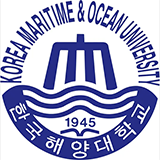Korea Maritime & Ocean University (국립 한국해양대학교)
Overview
Established: July 4, 1919
Nature: National University
Location: The main campus is located in Yeongdo District, Busan, South Korea, with a superior geographical location and beautiful environment.
Current President: You may need to refer to the latest information for specific information
Educational Philosophy
The educational philosophy of Korea Maritime & Ocean University is "Maritime Power", emphasizing the cultivation of marine professionals with international competitiveness and social responsibility through high-quality education and research.
Historical Background
July 4, 1919: Founded as "Jinhae Higher Marine Training Institute".
November 5, 1945: Renamed "Jinhae Higher Merchant Marine School", becoming the first national university established after liberation.
August 15, 1946: Renamed "Jinhae Maritime University".
January 30, 1947: After merging with Incheon Maritime University, it was renamed "Joseon Maritime University".
October 1948: renamed "National Korea Maritime University".
January 1, 1950: renamed "National Maritime University".
July 14, 1956: finally renamed "Korea Maritime University".
Disciplines and departments
Undergraduate programs:
Maritime College: Navigation System Engineering, Maritime Transport Science, Maritime Police, etc.
Marine Science and Technology College: Marine Traffic Information, Maritime Law and Policy, Power Machinery Engineering, Materials Engineering, Ship Machinery, System Engineering, Maritime Technology Safety, etc.
Engineering College: Mechanical Engineering, Shipbuilding and Ocean Systems, Electronic Computers, Radio Communications, Marine Engineering, Energy Resources, Logistics Systems, Refrigeration Structures, Electrical and Electronics, Radio, Civil Engineering, Environment, etc.
International College: East Asia, English, English, International Trade, Administration, European Regional Studies, etc.
Graduate programs:
Each college has master's and doctoral programs, covering maritime, marine science and technology, engineering, international relations and other directions.
Featured majors
Navigation System Engineering: Cultivate professionals with navigation technology and management capabilities.
Marine Traffic Information: Focus on the research of marine traffic management and information systems.
Maritime Law Policy: Cultivate maritime management talents with legal and policy knowledge.
Power Machinery Engineering: Research the design and maintenance of marine machinery and equipment.
Ship Machinery: Focus on the development and application of ship machinery systems.
Maritime Technology Safety: Research the safety management of marine transportation and operations.
Marine Engineering: Research marine engineering technology and resource development.
International Trade: Cultivate professionals with international business knowledge and skills.
Campus
Yeongdo Campus: Located in Yeongdo District, Busan Metropolitan City, the campus has a beautiful environment and modern facilities, including advanced laboratories, libraries, sports facilities, etc.
Contact Information
Official Website: https://www.kmou.ac.kr/
Address: 1, Ocean University Road, Yeongdo District, Busan Metropolitan City, South Korea
Tel: +82-51-400-1114
Email: admission@kmou.ac.kr
Ranking
2024 QS Asian University Rankings: 401-450
2023 QS World University Rankings: Not in the top 1000
2020 QS Asian University Rankings: 49th in South Korea, 401-450th in Asia
Other Information
Admission Requirements:
Undergraduate: Applicants usually need to have a high school diploma, some courses require Korean proficiency (TOPIK Level 3 or above), and English-taught courses require English proficiency (TOEFL, IELTS, etc.).
Postgraduate: Applicants usually need to have a bachelor's degree in a related major, some courses require Korean proficiency (TOPIK Level 4-6), and English-taught courses require English proficiency (TOEFL, IELTS, etc.).
Scholarship: The school offers a variety of scholarship opportunities, including government scholarships, on-campus scholarships, etc., to help outstanding students reduce their financial burden.
Internship opportunities: The school cooperates with many companies and research institutions to provide students with abundant internship opportunities and enhance their practical work ability.
International cooperation: Korea Maritime University has signed academic exchange agreements with many universities around the world, providing exchange student programs and dual degree programs to help students expand their international perspectives.
Features and achievements
Academic research: Korea Maritime University has achieved remarkable results in many research fields, especially in the fields of navigation system engineering, marine traffic information, maritime law policy, power machinery engineering, ship machinery, maritime technology safety, and marine engineering.
Internationalization: The school actively promotes the internationalization process, attracts a large number of international students and scholars, and provides a variety of international courses and programs.
Alumni network: Alumni of Korea Maritime University are spread across all walks of life, and many alumni have achieved outstanding achievements in politics, business, culture and other fields.
Campus life: Korea Maritime University has convenient transportation and complete living facilities. There are many student associations and clubs on campus, which enrich students' extracurricular life.
-
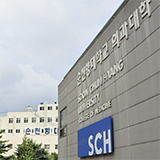
순천향대학교, Soonchunhyang University
-
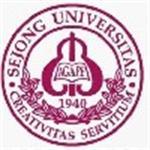
세종대학교,Sejong University
-
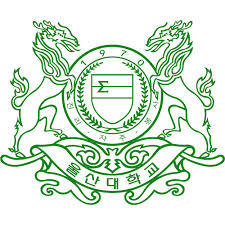
울산대학교,University of Ulsan
-
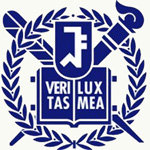
Seoul National University, SNU, 서울대학교
-
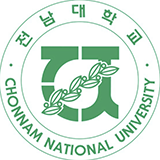
Chonnam National University, 전남대학교
-
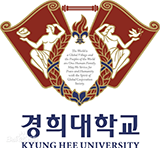
Kyung Hee University
-
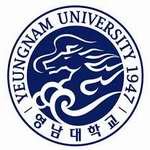
Yeungnam University, 영남대학교
-
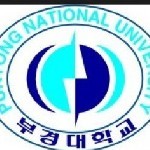
Pukyong National University, 국립부경대학교
-
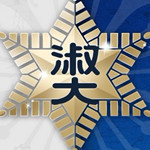
Sookmyung Women's University, 숙명여자대학교
-

Hallym University, 한림대학교
-

Mesoamerican University
-

Istmo University
-

Mariano Galvez University of Guatemala
-

Regional University of Guatemala
-

Galileo University
-

Francisco Marroquín University
-

Rafael Landívar University
-

University of the Valley of Guatemala
-

University of San Carlos of Guatemala
-

Technological Institute of Tlaxcala Plateau
-

Golfo University
-

Technological University of South Sonora
-

Technological University of Huejotzingo
-

Tizimín Institute of Technology
-

Chilpancingo Institute of Technology

